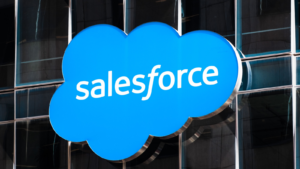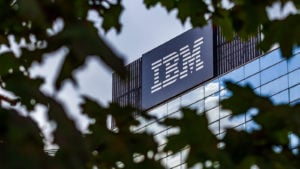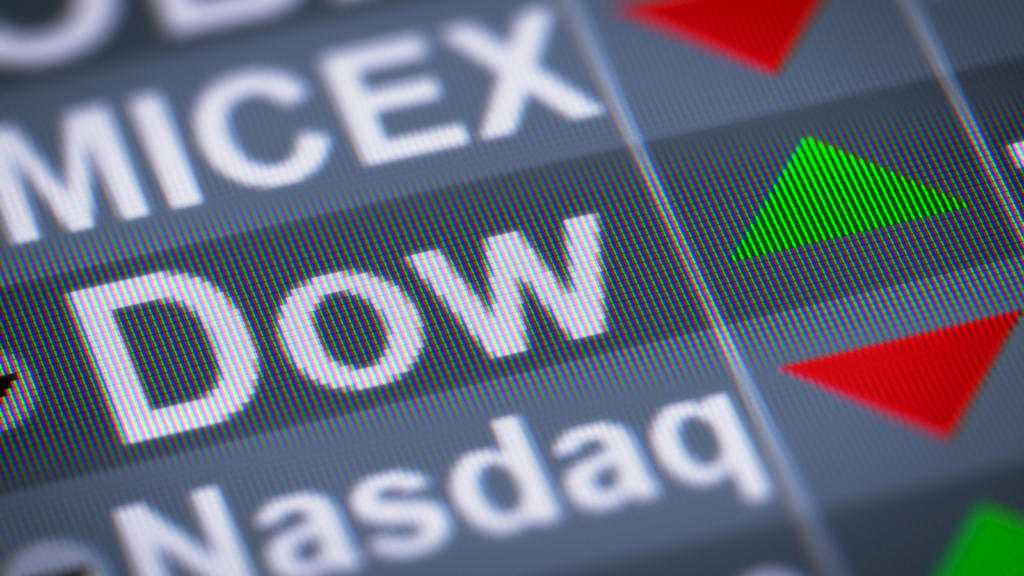The Dow Jones Industrial Average, or Dow 30, is an index comprised of 30 leading blue-chip stocks. Taken together, the 30 stocks that comprise the Dow index are meant to provide a snapshot of the health of the U.S. economy. While that might be true, it doesn’t mean all the stocks in the Dow Jones Industrial Average are infallible or good investments.
Currently, a number of stocks in the Dow 30 are underperforming the broader market, with some in the red for the year. Several Dow components have taken a turn for the worse in recent weeks after issuing first-quarter financial results that fell short of Wall Street’s expectations. Some have been hit with other negative news. Here are three Dow stocks to sell in June before they dive.
Salesforce (CRM)

The stock of Salesforce (NYSE:CRM) is already on a downslope after the cloud computing giant missed its quarterly revenue target for the first time since 2006. CRM stock fell 20% immediately after the company issued its first-quarter print. The stock has recovered a bit from the initial selloff but remains down 11% since the end of May and has declined 7% year to date.
The cloud software vendor reported Q1 EPS of $2.44, better than the $2.38 expected among analysts. However, revenue in the quarter totaled $9.13 billion versus $9.17 billion forecasted on Wall Street. It was the first sales miss in nearly 20 years. Leadership blamed the results on longer deal cycles and the implementation of a new go-to-market strategy that cut into its quarterly bookings.
Worse, management said on an earnings call that they expect deal compression and slowing projects in the professional services business to weigh on Salesforce’s financial performance for the remainder of this year. It’s time to sell CRM stock.
Walt Disney (DIS)

Perhaps investors should follow the lead of activist investor Nelson Peltz and dump their holdings of Walt Disney (NYSE:DIS) stock. Peltz sold his entire stake in the House of Mouse weeks after losing a proxy battle against the entertainment company. According to multiple media reports, Peltz sold all 30 million shares he owned in DIS stock. The sale was made at an average price of $120, earning Peltz a profit of $1 billion on his position.
Disney’s stock hit a 52-week high of $123.74 in April of this year before tumbling after the company’s latest financial results disappointed. The stock currently trades at $101.54 per share, having gained 10% in the last 12 months. However, lest investors get too excited, Disney’s share price is down nearly 30% over the past five years. Recent earnings showed trouble spots, notably with theatrical films and streaming content.
Peltz’s sale comes weeks after he lost a proxy battle at Disney as shareholders re-elected the company’s existing board of directors. Peltz had taken issue with Disney’s streaming strategy and succession plan for CEO Bob Iger, the same issues that analysts continue to highlight about the company. This all makes Disney a Dow stock to sell.
IBM (IBM)

Shares of IBM (NYSE:IBM) don’t look very enticing after the tech giant reported disappointing Q1 financial results and announced a curious new acquisition. The company reported EPS of $1.68, which topped the $1.60 forecasted among analysts. However, revenue of $14.46 billion missed forecasts of $14.55 billion. It was IBM’s third revenue miss in the last five quarters, sending the stock down 8%.
Also weighing down IBM stock is news that the company is acquiring cloud software maker HashiCorp (NASDAQ:HCP) in a cash deal valued at $6.40 billion. Executives at IBM have said the acquisition will be accretive to earnings in the first full year after it closes. The company expects the deal to be finalized by year’s end. HashiCorp is expected to complement Red Hat, which has contributed to IBM’s revenue growth since that $34 billion purchase was completed in 2019.
While management has put a positive spin on the HashiCorp deal, analysts and investors are viewing it as a head-scratcher, further contributing to the selloff in IBM stock. The company’s shares are up 4% on the year compared to a 13% gain in the S&P 500 index.
On the date of publication, Joel Baglole did not hold (either directly or indirectly) any positions in the securities mentioned in this article. The opinions expressed in this article are those of the writer, subject to the InvestorPlace.com Publishing Guidelines.
